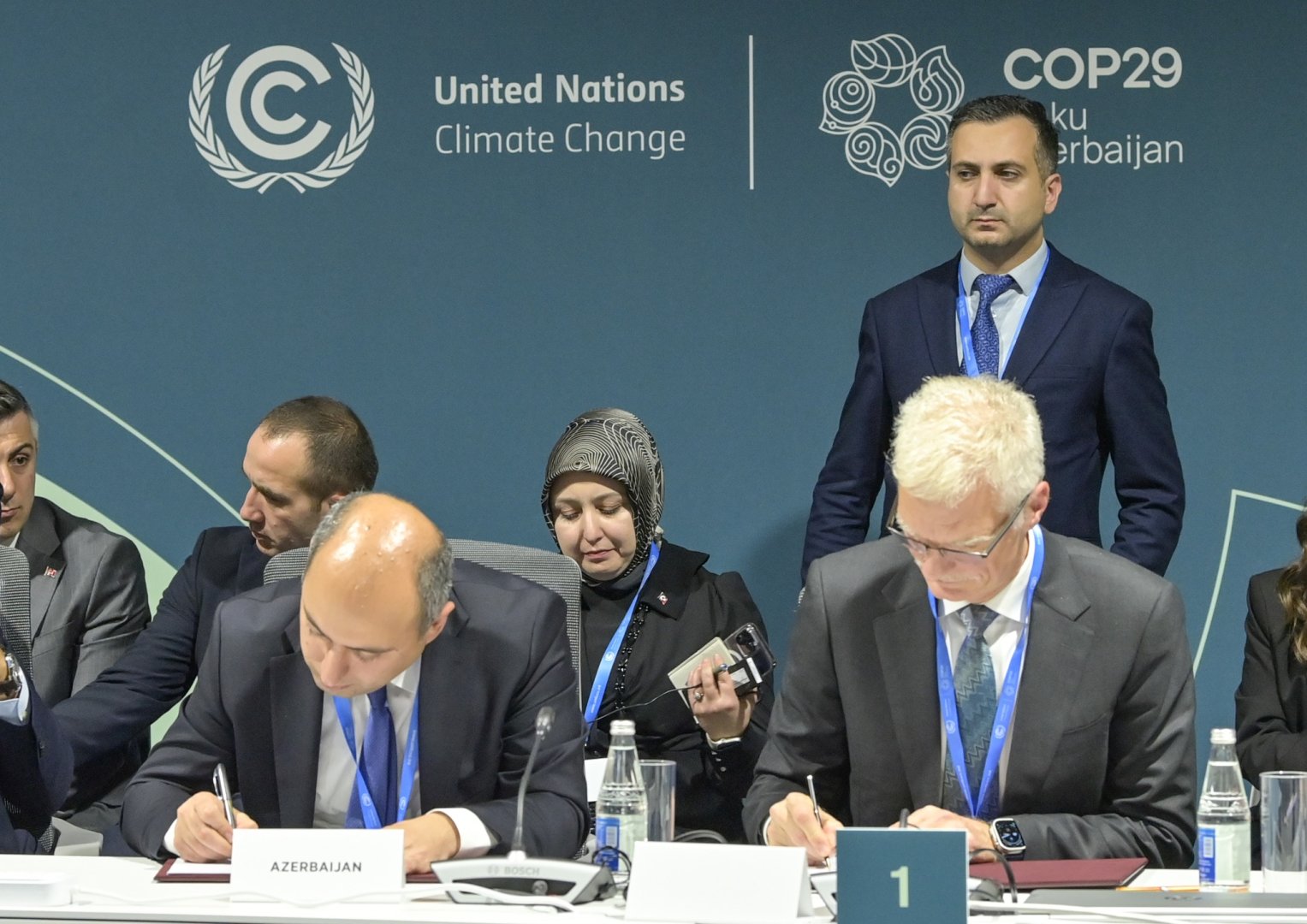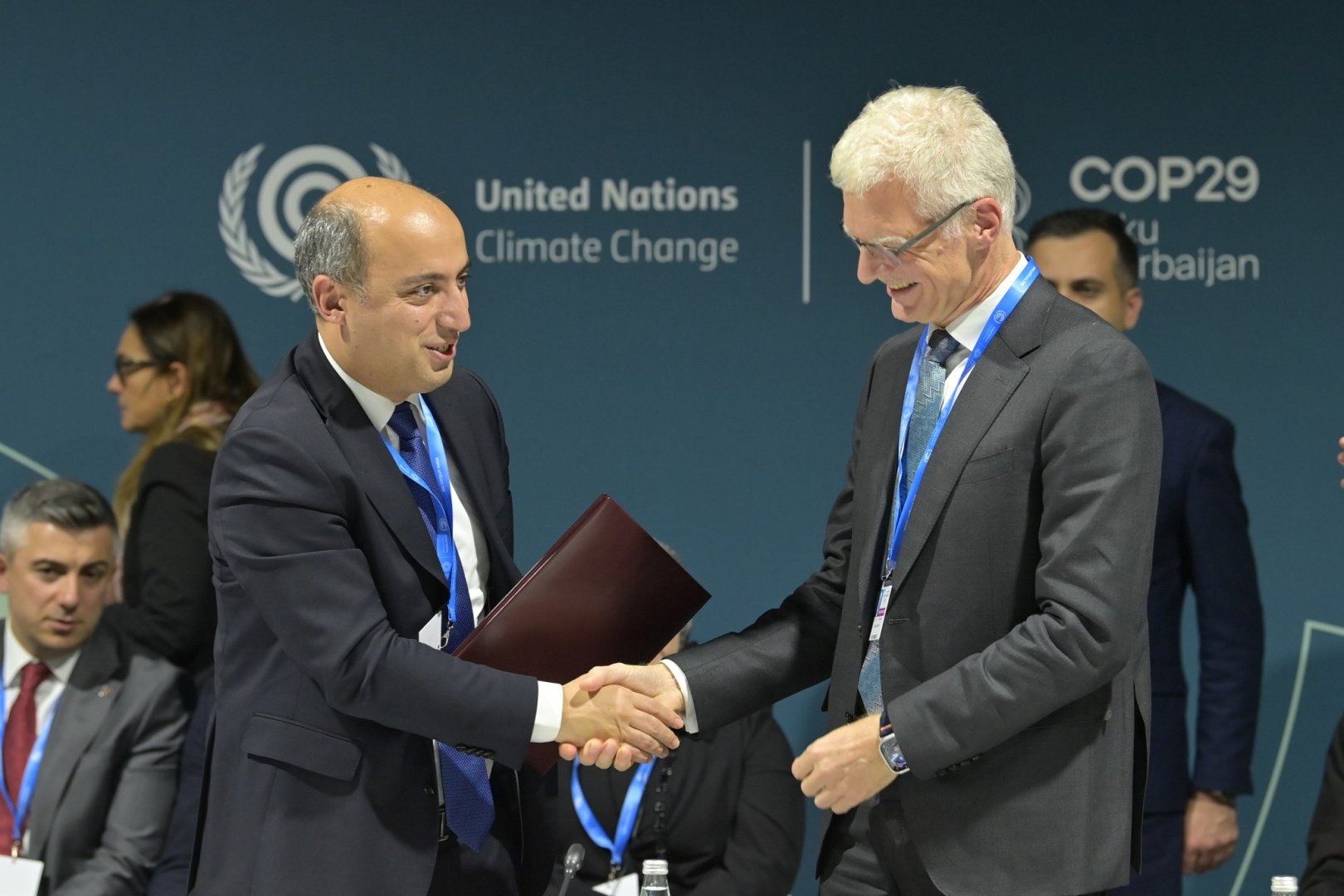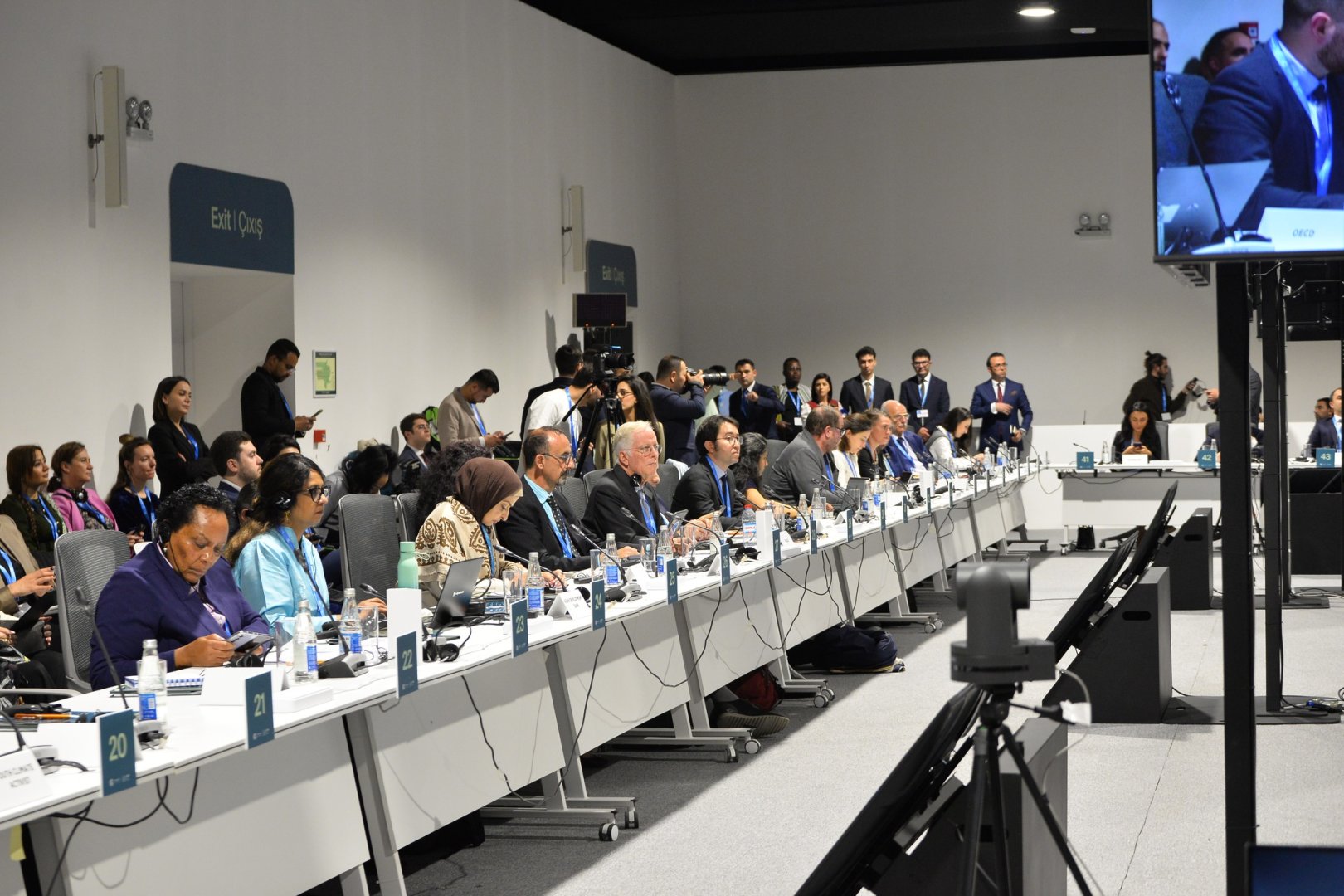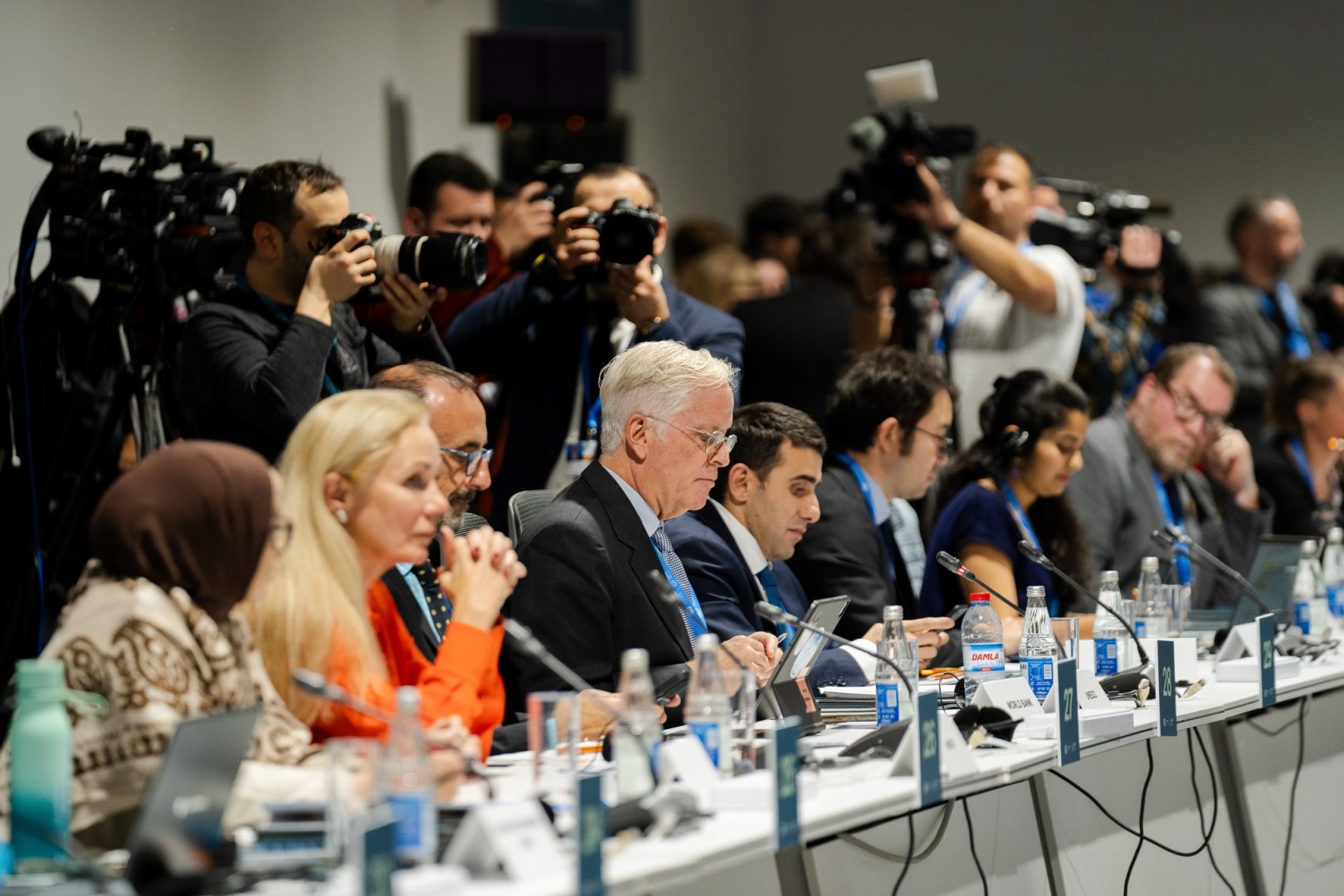BAKU, Azerbaijan, November 20. Azerbaijan's initiative to measure “climate literacy” through the International Program for the Assessment of Students' Educational Achievement (PISA) was supported by COP29 on November 18, Trend reports via the Ministry of Science and Education of Azerbaijan.
Thus, at a high-level panel session on “Measuring environmental literacy within the framework of international assessment” between the Ministry of Science and Education and the Organization for Economic Cooperation and Development (OECD), an agreement on cooperation on the assessment of “climate literacy” of students within the framework of PISA was signed.
The agreement was signed by Minister of Science and Education Emin Amrullayev and Director for Education and Skills of the Organization for Economic Cooperation and Development (OECD) Andreas Schleicher.
According to the agreement, in the next PISA study, which will be held in 2029, a framework document on the assessment of “climate literacy” of students around the world and training materials on the organization of this process will be prepared at the initiative of Azerbaijan.
The agreement is viewed as an important step in focusing global efforts to integrate “climate literacy” into education, following the 29th session of the Conference of the Parties to the United Nations Framework Convention on Climate Change (COP29).
To note, the 29th session of the Conference of the Parties to the UN Framework Convention on Climate Change (COP29), which will run until November 22, opened at the Baku Olympic Stadium on November 11. It is the largest event organized by Azerbaijan to date, and the first time in the region that it is being held in Azerbaijan.
Within COP29, the highest level event - the summit of world leaders on climate action - was held on November 12–13.
The main expectation from COP29 is to agree on a fair and ambitious New Collective Quantitative Goal (NCQG) on climate finance. The COP29 chairmanship has launched 14 initiatives that include linkages between climate action and the Sustainable Development Goals, including green energy corridors, green energy storage, harmony for climate resilience, clean hydrogen, methane reduction in organic waste, action on green digital technologies, and other topics.
In addition to being a top priority that creates the conditions for action, creating climate finance will also help fulfill the 1.5°C pledge by bringing everyone together.
The UN Framework Convention on Climate Change is an agreement signed at the Rio Earth Summit in June 1992 to prevent dangerous human interference in the climate system. The acronym COP (Conference of Parties) stands for “Conference of Parties” and is the highest legislative body overseeing the implementation of the Framework Convention on Climate Change.
A total of 198 countries are parties to the Convention. Unless otherwise decided by the parties, COP is held annually. The first COP event was held in March 1995 in Berlin, and its secretariat is located in Bonn.
Stay up-to-date with more news on Trend News Agency's WhatsApp channel














